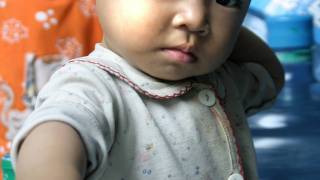82% of Americans Support Requiring Measles Vaccination To Attend Public School

Public attitudes about the measles, mumps, and rubella (MMR) vaccine remain broadly positive in the USA, according to a new Pew Research Center survey.
Published by Meg Hefferon and Cary Funk on January 7, 2020, this Pew survey found an overwhelming majority of U.S. adults (88%) say the benefits of the MMR vaccine outweigh the risks, which is about the same share as when Pew measured in 2016.
Pew also found the number of people who consider the MMR vaccine’s preventive health benefits to be “very high” has increased by 11 percentage points since 2016.
The findings come amid rising public health concerns about measles outbreaks in the U.S. and around the world.
In 2019, the US Centers for Disease Control and Prevention (CDC) reported the highest annual number of measles cases in more than 25 years.
However, the CDC reported during 2019 that over 75 percent of these measles cases were related to international travelers exposing people in the USA to the virus.
This Pew survey found Americans with more education and family income say measles vaccine benefits are high, and the risk is low.
Those with higher levels of education and higher family incomes are particularly likely to consider the preventive health benefits of the MMR vaccine as very high and, on the flip side, to see the risk of side effects as low.
For example, an overwhelming majority of Americans with a postgraduate degree (93%) say the health benefits of the MMR vaccine are very high or high, while only 68 percent of those with a high school degree or less education say the same.
Americans with higher family incomes also are especially likely to say there are high preventive health benefits and low risk of side effects from the MMR vaccine.
The Center’s new survey finds that a strong majority of the American public (82%) supports required MMR vaccination for public school attendance.
While 16 percent feel parents should be able to decide whether to vaccinate their children even if that might create health risks for others.
The views on this issue are about the same as in 2016, said this Pew survey.
Measles is caused by a highly contagious virus, measles is a disease that spreads from person to person by breathing, coughing, or sneezing. People can spread measles up to 4 days before and 4 days after they have a rash.
Measles can lead to serious complications, such as pneumonia, and even death says the CDC.
To notify all international travelers of their measles health risks, the CDC reissued a Level 1 Travel Alert on January 3, 2020.
This CDC travel alert says ‘before you travel internationally, regardless of where you are going, make sure you are protected fully against measles.
The CDC says measles can be prevented with 2-doses of the MMR-II vaccine and children have the option of getting the Proquad vaccine, which protects against measles, mumps, rubella, and varicella.
As a general notice, the CDC says ‘if you are not sure of your measles immunization, see your healthcare provider at least 1-month before your scheduled departure. And, vaccines can cause side effects, which should be reported to a healthcare provider, or to the CDC.’
Measles vaccine news published by Precision Vaccinations
Our Trust Standards: Medical Advisory Committee

























